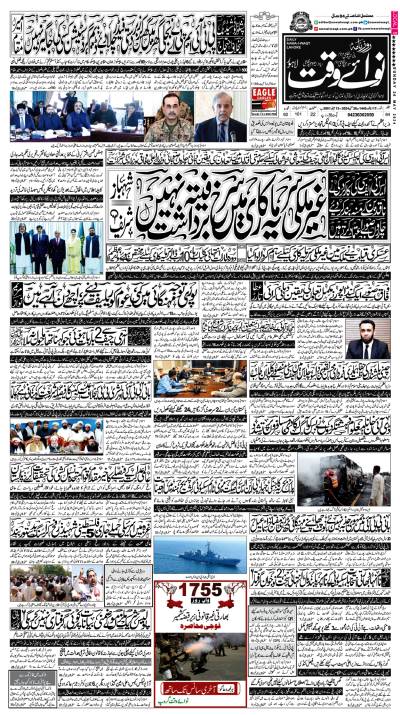Recently I was fortunate to watch the first screening of Among the Believers at FC College. This documentary has been made by two America based Pakistani filmmakers. Apparently, one of them lost children from his family in the APS massacre. However, it is Professor Hoodbhoy who looks to be the driving force behind the film. The film centres on Red Mosque and its leader Maulana Abdul Aziz. It very clearly outlines the system through which young children are left at one of the 10,000 seminaries run by the Lal Masjid network throughout Pakistan. The children stay there for years with minimum contact with their families and all they do is learn Quran by heart from dawn till 9 pm. The method is rote learning and no meaning of the text is taught. Not only are these children from poor families provided free boarding and lodging, their parents are also told that not only the child who memorises Quran will go to heaven but along with him 10 members of his family will reach paradise as well! The film shows Maulana Aziz declaring that the only way Pakistan can get out of this spiral of violence is by enforcing Quran and Sunnah in the land. He also clearly states that his mission in life is to keep working for enforcement of rule of Quran and Sunnah in Pakistan and beyond and he will not change. “Arrest me, shoot me, but don’t expect me to stop doing what I do” he declares in a chilling scene.
In one sequence we are shown pages from an illustrated qaida used to teach in one such madrassas. A is for Allah, B is for Bandook (gun) H is for Hijab (veil) , T is for Takrao (collusion) with planes showed slamming into World Trade Centre. Z is for Zahof (Sin) and every source of entertainment like music, TV, chess etc is depicted as sin.
The film also runs a parallel story of a young girl, barely in her teens, from a family of 13 who was enrolled in one of such madrassas but escaped as she wanted to go to school. She then went to school for a while and loved it; but the school was closed after receiving threats from the militants and thus her father married her off! I am sure this is a story of thousands of girls across Pakistan.
There are also some encouraging stories of people who are trying to spread modern education in these villages but are intimidated and threatened by the militants. The threats as we know are real. In one scene we are shown schoolgirls making a model of their school, and at its gate they place a guard with a sword in his hand. He is there to protect from the jihadis, their teacher explains, “So why a sword in his hand, why not a gun?’’ he is asked and in a hilarious, extempore response he says:
“Oh because they have a suicide vest and it should explode. With a sword it is just clean decapitation.”
After the film’s screening Professor Hoodbhoy, who deserves the highest praise for his courage and passion, engaged the audience in a question and answers session. Most of the audience were students and they asked typical questions Pakistanis ask on this issue, like:
“If someone kills my child I will kill his child. So while it is sad the children died in APS attack, what about the children who died in drone attacks?’’
To this Professor Hoodbhoy replied:
“Well we love to shift all blame on US drones and while I condemn the loss of innocent lives in drone attacks we need to understand that these deaths are accidental and not intentional. On the other hand, the attacks on APS and Charsada are intentional slaying of innocent men, women and children.’’
Another question was:
"Most of madrassas don’t teach violence, they teach Quran, so how can this make the children into jihadis?’’
Professor Hoodbhoy explained that while they may not be directly encouraging violence (though they often are for Islam) they teach obedience in the name of Allah and so the students can easily be led to violence in the name of Allah.
Now we all know how Maulana Abdul Aziz’s set up is producing foot soldiers for the fundamentalist jihadi militias. But the most important point the film makes can be easily missed and Professor Hoodbhoy made sure that the audience take note of it: that Abdul Aziz and his followers sincerely believe what they are doing is god's work and will bring betterment for the world. These people are not greedy for money or power, all they seek is to enforce the commands of Quran and Sunnah in the land and how can enforcement of Quran be anything but good for the humanity? As Professor Hoodbhoy pleaded, rather desperately, "This is no laughing matter, this is life and death". And it does look as though Pakistani society is locked in a fight till death with the dark forces of fundamentalism. It is time people stop shifting the blame to USA, India or Israel and start tackling the real grass root problems in our society. I am afraid it is no longer enough to sit on the fence; the population has to take a stand against religious fundamentalism. And in this those who don’t participate actively will by default become allies of the fundos, even if they don’t agree with them.






